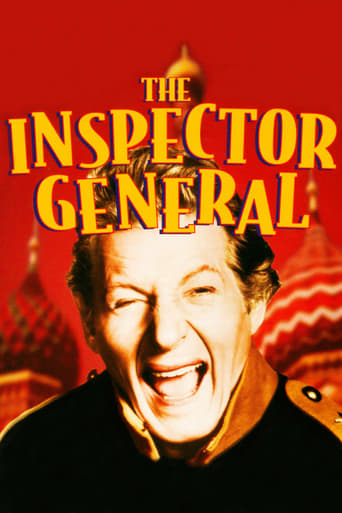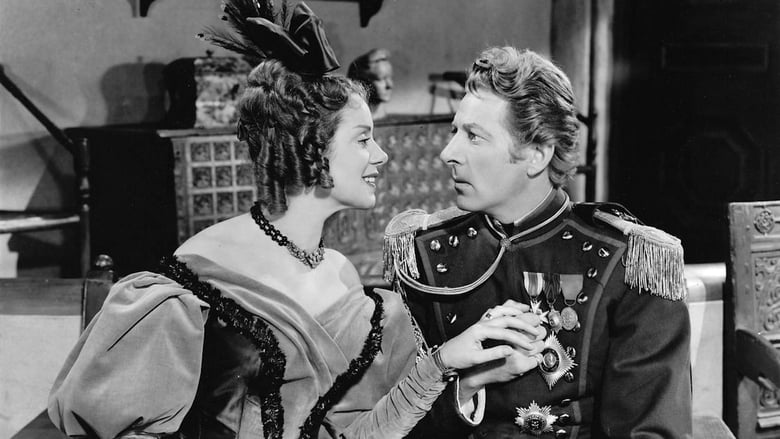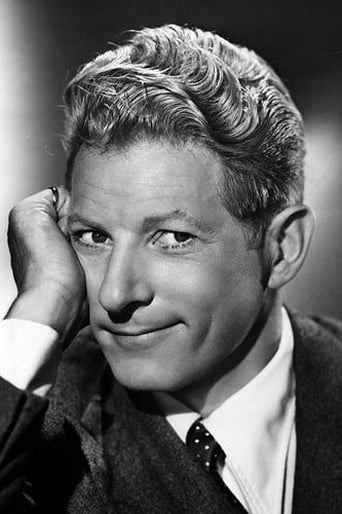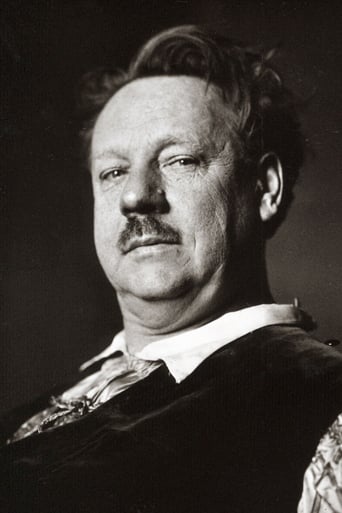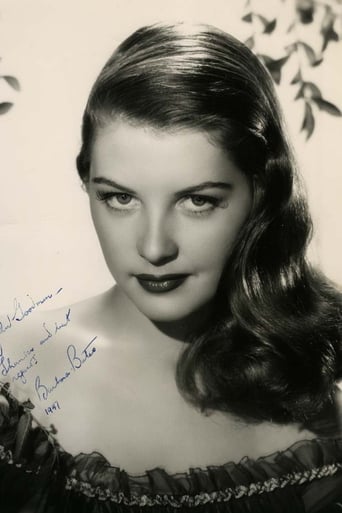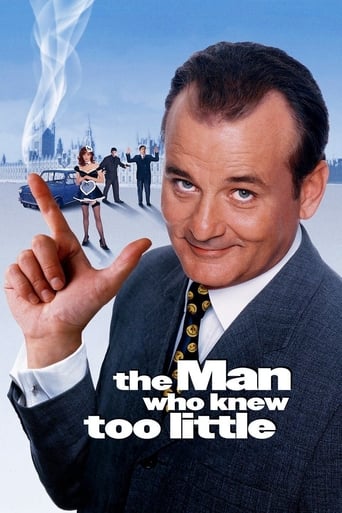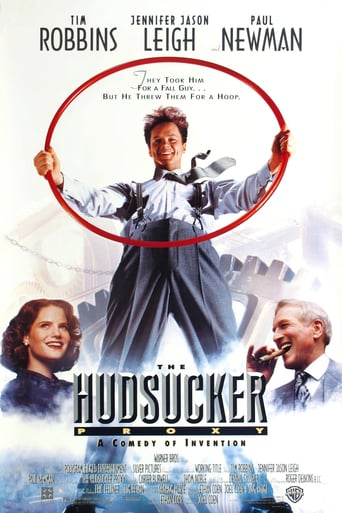The Inspector General (1949)
An illiterate stooge in a traveling medicine show wanders into a strange town and is picked up on a vagrancy charge. The town's corrupt officials mistake him for the inspector general whom they think is traveling in disguise. Fearing he will discover they've been pocketing tax money, they make several bungled attempts to kill him.
Watch Trailer
Cast
Similar titles


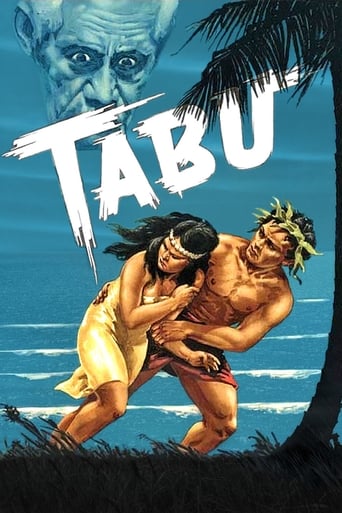
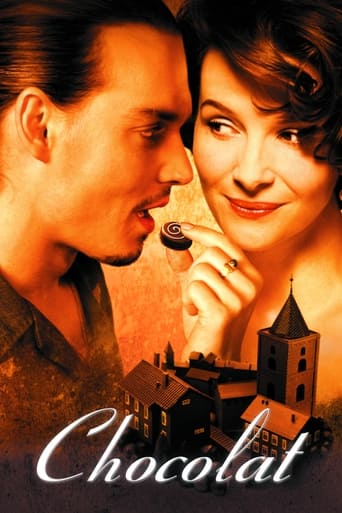
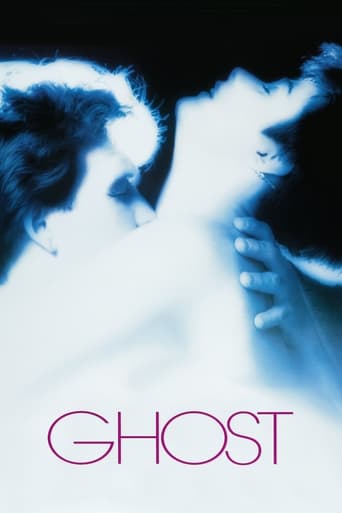
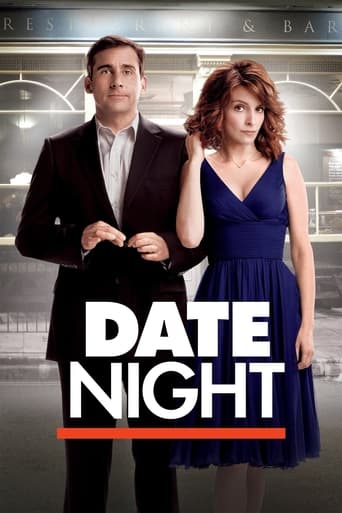
Reviews
Brilliant and touching
Absolutely Brilliant!
The film creates a perfect balance between action and depth of basic needs, in the midst of an infertile atmosphere.
Unshakable, witty and deeply felt, the film will be paying emotional dividends for a long, long time.
As I understand it, Henry Koster's movie version of "The Inspector General" is only a loose adaptation of Nikolai Gogol's play. But even so, it's a really fun movie. Danny Kaye provides a lot of fun as a illiterate drifter who gets mistaken for a government inspector in a town overrun with corruption in Napoleon-era France. There are a couple of scenes in the movie that truly elicit a lot of humor, and the songs -- which Kaye's wife Sylvia wrote -- just go to show what one can do with a language. There are a few slow scenes, but mostly it's a really entertaining piece of work. I'm going to have to see if I can find a production of Gogol's original play (called "Revizor" in Russian, often called "The Government Inspector" in English).Also starring Walter Slezak (the Clock King on the 1960s "Batman" show), Gene Lockhart, Barbara Bates, Elsa Lanchester (the Bride of Frankenstein), Alan Hale Sr. (yes, the Skipper's father) and Rhys Williams.PS: Another one of Nikolai Gogol's notable stories is the horror short story "Viy", which Mario Bava filmed as "Black Sunday" starring Barbara Steele.
This is a movie! Danny Kaye is one of the lost gems. His movies are almost all classics. Whatever they lacked on the drawing board, he added to. This one was a classic story line guaranteed to be great. Some scripts are just great. "Arsenic and Old Lace", "The Front Page", movies like these are destined to be entertaining no matter how badly done. When done well, they are spectacular and spectacular! Kaye is a poor slob who thinks he is going to be hanged by a corrupt town, but then events take place which I won't spoil in this review. Trust me, you won't stop laughing. The voting for this movie indicates men like it slightly more than women. Danny Kaye was a man's man, and his heroines were always men's women, the kind so perfectly beautiful that female viewers can't help but get jealous. Female viewers like the plain Jane as female leads, like in the movies of the last twenty years. In this movie, the lead female is one of the most gorgeous you'll ever see. Kaye always managed to get paired with the most beautiful girl in the show. Then there's Danny Kaye's pure talent. He sings not only with talent, but with affection and timing. Perfect comic genius makes him a delight to watch. And the rest of the cast is splendid. Not just one of the best comedies, but one of the best movies of all time.
My wife and I tried 3 times to watch this movie. Even though we are Danny Kaye's devoted fans from his classic 'The Court Jester' he is most poorly directed in this movie. The lines are cheesy, the acting is bad, and the so called humor in this dated movie feels tacky, amateurish, and completely overacted. Such poor video editing and so many cartoonish sound effects are put to try to draw a laugh it is almost an insult to the viewer's intelligence. I cannot seem to like or care for one single character, and there are many I hate. Some songs were much too long and unnecessary. Danny Kaye appears like only a shadow of his own self. It is a pity to see such great talent wasted.
Danny Kaye's films with Samuel Goldwyn established him as a leading movie comedian - singer from 1944 through the late 1940s. For a number of years after he continued his popularity without Goldwyn in films like "Knock on Wood", "The Court Jester" and "Merry Andrew". It is likely that "The Court Jester" is his best film, but "The Inspector General" is close to the top. Based on a 19th Century satiric play by Nicolai Gogol, Kaye plays Georgi, a decent fellow who works for the bullying Yakov (Walter Slezak). Yakov and Georgi travel around the countryside selling "Yakov's elixir" which is supposed to cure all kinds of illnesses (that Kaye sings in a tongue-twisting song by Sylvia Fine, his wife). But they are forced to flee when Georgi tries to stop an elderly woman from wasting her money on the elixir. Naturally Yakov is upset, and sends Georgi away until he learns to be crooked. Yakov has been using a fake official document signed by Napoleon as a come on in his sales pitch. Georgi is carrying it. He is arrested by the town constable (Alan Hale Sr.) for vagrancy, but the latter reads the letter. As the Mayor (Gene Lockhart) and his cohorts are awaiting (with dread) a visit by Napoleon's Inspector General to check their records (they have been feathering their nests), they think that Georgi is this Inspector General. When Yakov comes to town he quickly grasps the situation, and pretends he is the "Inspector's" servant. Slezak knows that there are real opportunities here.The funny thing is that Gogol's play is not quite like the film. First of all, Gogol was writing a critique of government corruption in the Russian Empire under Tsar Nicholas I (1825-1855). Gogol was a religious mystic and satirist (best recalled for his unfinished novel about serfdom, "Dead Souls", and his novellas "The Diary of a Madman" and "The Overcoat"). Normally Nicholas was a humorless despot, who hated intellectuals. But he liked THE INSPECTOR GENERAL, which attacked the worst aspects of Russian local government corruptions that the Tsar did want to see eradicated. Because he approved, the play was a great success, and became one of the few 19th Century plays that became part of the permanent world repertory.But Gogol's targets were Russian, not French. Napoleon is not a background figure in the play. The Inspector General (actually the title is "The Government Inspector" in Russian) is from the Tsar. They have heard rumors of the corrupt practices, and are checking them. Georgi's character is not such a well-intentioned type in the play as he is in the movie. He is as willing to feather his nest as Yakob is, and they prove to be a highly successful team.This is because the Mayor and his cohorts are quite willing to bribe their way out of the current investigation. This includes selling the Mayor's wife for sex, and paying out much in bribes and "gifts". And in the end, after "Georgi" and Yakob leave with their loot, the Mayor thinks he will be called to St. Petersburg for some really important post. But months later they hear of a letter circulating in the capital from "Georgi" boasting of how he fooled the Mayor and his cohorts. Then, just as things couldn't get worse, a servant announces the arrival of "a Government Inspector" to review the books. Everyone freezes in terror as the curtain falls. The film softens "Georgi's" character, leaving Yakov as the greedy one (although Slezak does redeem himself at the end). The Mayor and his cohorts (who do things like collecting for a church bell but pocketing the money themselves) do try to kill off the Inspector General - there is a funny sequence at a party where "Georgi" sings a song about "sing Gypsy, dance Gypsy", and keeps on just avoiding drinking his doctored drink during the song. Georgi's guardian angel protects him. He also meets Leza, a servant (Barbara Bates) and falls for her. He debates how to appear before her as a General - should he be elegant like an Englishman, arrogant like a Russian, or smart like a German. In some ways "Soliloquy for Three heads" may be the best of the numbers in the film. Although watered down from Gogol's stunning comic play, enough entertainment value remains in the film to make it worthwhile viewing, and a highpoint in appreciating Kaye's movie career.
